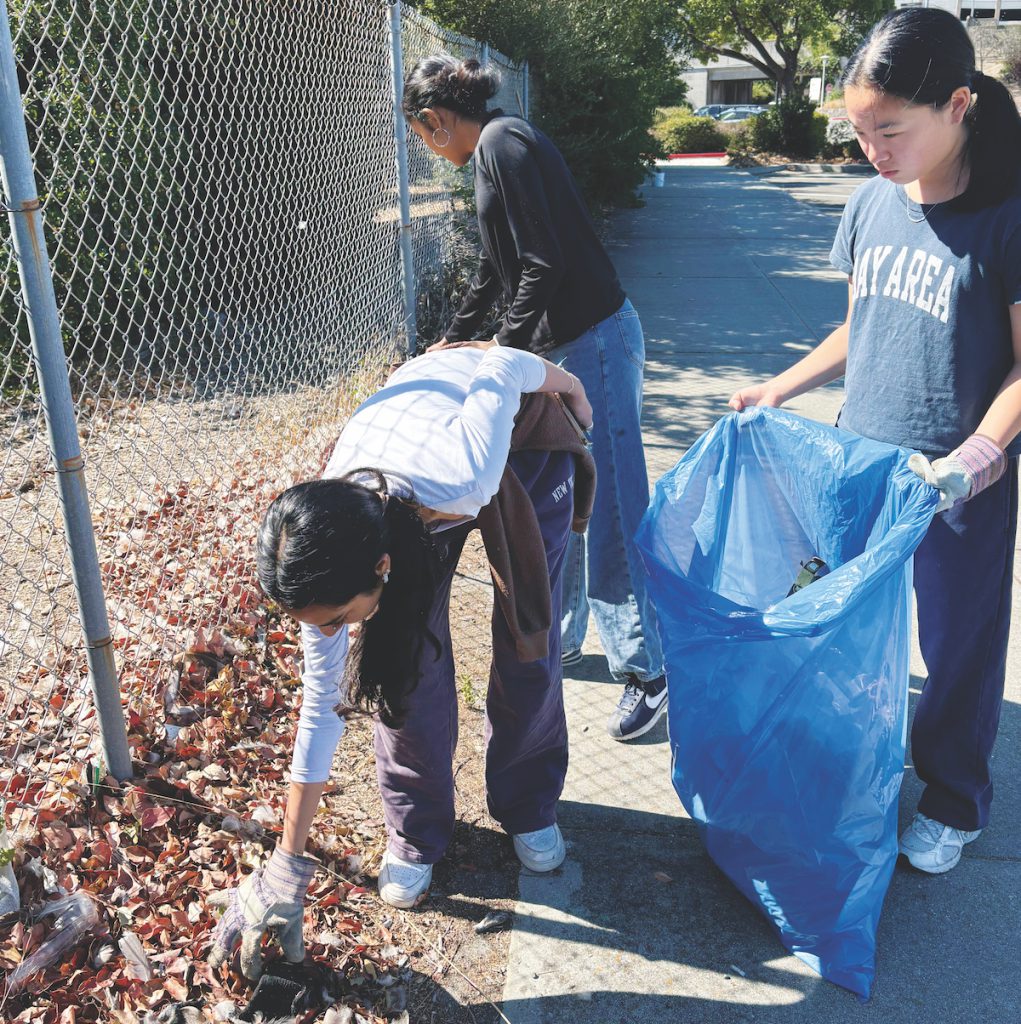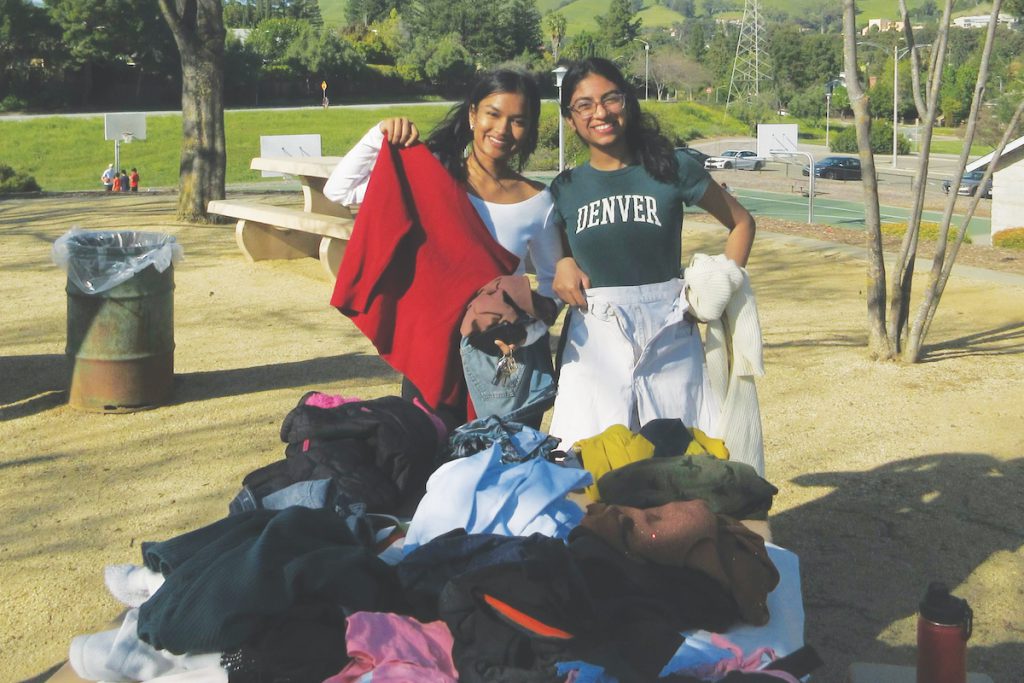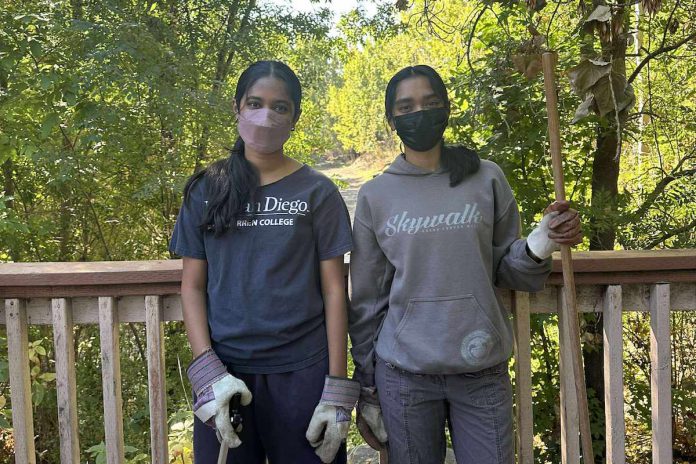Youth-based nonprofit Greenkeepers is a testament to how determined the next generation is to take care of our planet. With three branches across the globe, Greenkeepers embraces innovation and collaboration when it comes to advocating sustainable practices.
Founded in 2009 in China, Greenkeepers was created by a group of high school students who were inspired after a trash pickup event at their school. At that point in time, locals merely thought of trash when it came to recycling or re-selling, leaving actual waste to gather in the streets. Greenkeepers became a way for youth to tackle local environmental issues. Today, the nonprofit has three branches—in China, Indonesia and the United States. Each branch’s projects align with the particular concerns of the local area.
The Bay Area-based USA Branch is composed of youth core leaders and general members, all working on different tasks based on their department. Each year, a new group of core leaders is selected. This year’s group includes Manya Jain (Mission San Jose High School) and Ritika Mhatre (Irvington High School) as co-presidents, Niati Agarwal and Jessica Dao for social media, and Bhavishya Thirumalesh for events and research. The core leaders oversee general members in engineering, social media, and events and research.
These youth are a driving force in promoting environmental awareness and creating digestible, hands-on solutions that contribute towards the health of our planet. “We like to do more small-scale projects because you unfortunately don’t get a lot of roll-out from large-scale efforts,” says Jain. “A lot of what Greenkeepers is about is starting small so we have a bigger impact locally.”

Courtesy of Greenkeepers

Courtesy of Greenkeepers
Greenkeepers has hosted several community-based projects, the first being a collaboration with Lake Elizabeth for their Leave No Trace campaign. Members created and distributed educational sustainability fliers as well as collected trash near the lake. “These posters motivated visitors to reduce their reliance on single-use plastics, use compostable products, and clean up after themselves,” says Mhatre. “We also spent lots of time collecting trash and have collected over 200 pounds of trash in these clean-ups.”
Greenkeepers also hosts volunteer events once a month, with the most recent being a clean-up at Tule Ponds. “Our members and volunteers came and learned about tule plants,” Jain says. “We cleaned up the creek inside of the preservation and outside the fence near the BART station, where lots of trash has piled up.” Inviting the community to participate in such events is integral to Greenkeepers’ mission of acknowledging local environmental issues.
The Sustainability Futures panel was another successful project that highlighted environmentalism as a professional pursuit. Forty high school students were invited to a panel of environmentalist experts who explained how environmental science plays a key role in different career paths, from engineering to research. Lastly, a personal favorite of Mhatre’s was an in-person clothing swap, in which attendees brought gently used clothes and exchanged them with others.
“What I liked about this event was that it was a fun way [for students] to meet other people from their school and refresh their wardrobe without contributing to fast fashion,” says Mhatre. “A lot of times people keep consuming and buying clothes they don’t need, or throwing them away after using it one to two times. The goal of this event was to promote reusing clothes, reduce textile waste, and encourage eco-friendly choices.”
A project on the horizon is the development of an electric vehicle (EV) station finder app. Jain, who also acts as core leader of engineering, says, “Electronic waste is something people don’t really think about or discuss, but it causes so much damage to the environment. That’s why this year our goal is to steer more into e-waste prevention.”
The app would use machine learning to classify different EV charging stations, such as Tesla and other EV companies, and act as a map to route users to the nearest charging station. Projects like this further emphasize Greenkeepers’ ability to make environmental change not only easy but accessible and adaptable.
Greenkeepers’ efforts make the dream of a more sustainable, greener future not so distant. “We only have one planet,” says Mhatre. “If we destroy it, there’s nothing left for us. So, we need to keep making sure that we’re preserving resources, whether it’s through clean-ups or research projects or app developments.”
Garnering community involvement is also essential, as Jain adds, “It takes just one person to start change. I don’t think we’re going to Mars anytime soon, so treating this as our home and not just as a hotel matters.” With this level of environmental mindfulness, Greenkeepers is an inspiring example of the advocacy we should uphold when it comes to our planet.
To learn more about Greenkeepers, please visit greenkeepersusa.org.




